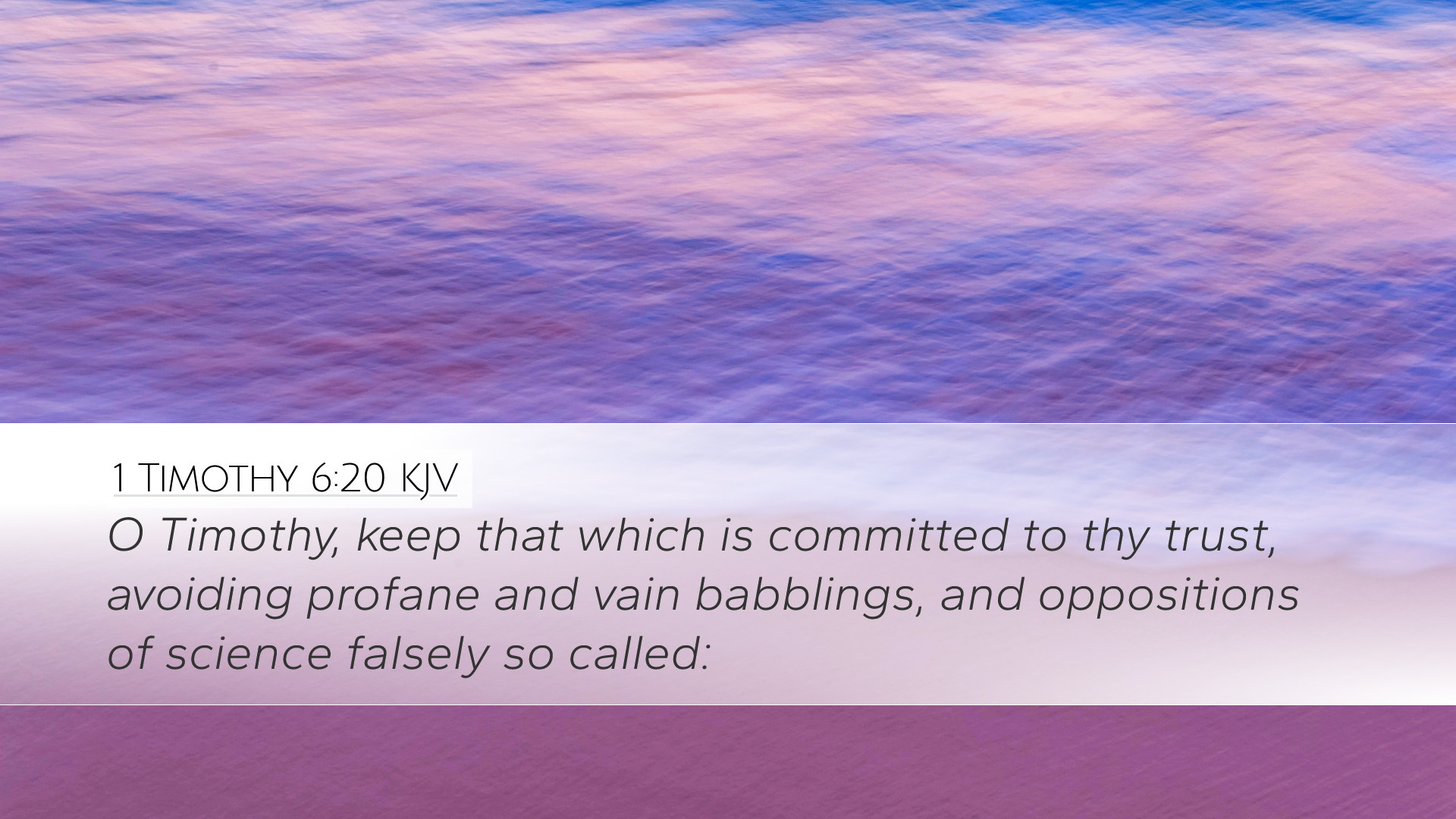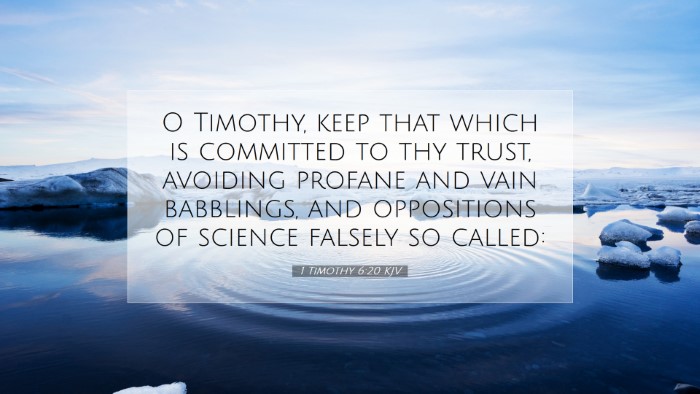Old Testament
Genesis Exodus Leviticus Numbers Deuteronomy Joshua Judges Ruth 1 Samuel 2 Samuel 1 Kings 2 Kings 1 Chronicles 2 Chronicles Ezra Nehemiah Esther Job Psalms Proverbs Ecclesiastes Song of Solomon Isaiah Jeremiah Lamentations Ezekiel Daniel Hosea Joel Amos Obadiah Jonah Micah Nahum Habakkuk Zephaniah Haggai Zechariah MalachiVerse
1 Timothy 6:1 1 Timothy 6:2 1 Timothy 6:3 1 Timothy 6:4 1 Timothy 6:5 1 Timothy 6:6 1 Timothy 6:7 1 Timothy 6:8 1 Timothy 6:9 1 Timothy 6:10 1 Timothy 6:11 1 Timothy 6:12 1 Timothy 6:13 1 Timothy 6:14 1 Timothy 6:15 1 Timothy 6:16 1 Timothy 6:17 1 Timothy 6:18 1 Timothy 6:19 1 Timothy 6:20 1 Timothy 6:21

